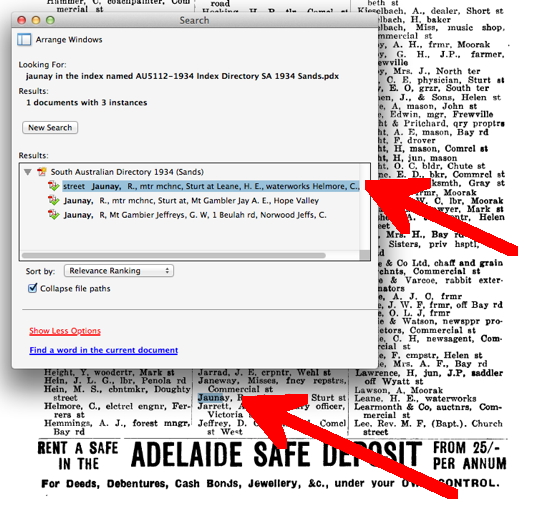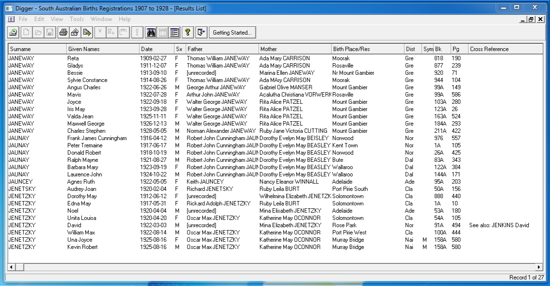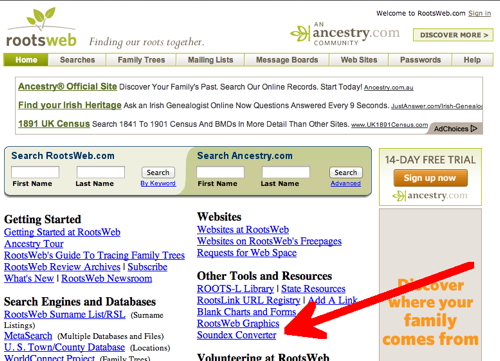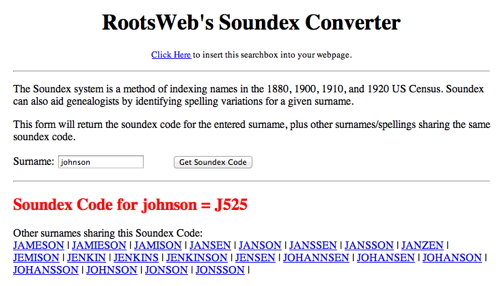You
are receiving this because your address is subscribed at: www.jaunay.com/newsletter.html |
|
 |
| No: 83 |
January 2013
|
|
News January seminars There are no seminars planned for January. February seminars 24: Coming to grips with the new FamilySearch, WEA Centre Adelaide 10:00 to 1:00pm 27: Introduction to Family History research, WEA Centre Adelaide 8:00 to 9:30pm over 7 weeks until 10 Apr 2013 Adelaide Proformat will be closed 15 Dec 2012 to 21 Jan 2013 See the seminar program for more details and bookings. Northern Ireland certificates The price of BDM certificates from the General Register Office Northern Ireland went up from £14 to £15 on 17 Dec 2012. Essex parish register collection The online collection of parish registers at Essex Ancestors now includes virtually all of the registers held by the Essex Record Office. See their blog for details. Derbyshire Records Derbyshire Record Office and Derbyshire Local Studies Library are now closed until 12 Feb 2013 for relocation. Using search engines effectively With an increasing amount of material online for family historians it is important to use the search engines provided effectively and there are some basic rules to observe. Firstly it is important to point out that the methodology outlined differs from subject and topic hunting on the Internet and specifically applies to name searching. In fact some of the material that follows is the exact opposite of what you should employ for general searching. The rules you should observe are… 1. Input the minimum of information in as few as possible fields as the search engine will allow. 2. The effective use of wildcard searching can overcome spelling variations. |
In
this issue: |
|
Adelaide
Proformat Services
|
| 3. An awareness of all possible spelling variants strengthens the search success rate. 4. Avoid phrase searching, Boolean Logic and other search techniques. 5. Never restrict yourself to a single search engine if alternatives are available. Neither the perfect search engine nor the perfect searcher exists. Search engines are found on web sites such as Google that are designed to search data on the Internet. (For information and techniques for general searching using web search engine please read Newsletter 22.) Collections of records for family historians such as Ancestry and FindMyPast employ search engines to locate the data sought. Search engines can also be found on data CD/DVDs such as the numerous gazettes published by Gould Genealogy. Let's see the reasoning behind these rules… Rule 1: Every key-stroke you make in a search engine field that does not match the associated database means a result will not be located and therefore you need to enter the minimum of information in as few as possible fields as the search engine will allow. Therefore when entering material into fields restrict it to the surname field only unless the specific search engine demands more data. Conduct your search and if the result is too large to manage then tighten the parameters of the search by supplying a date range if that is possible. Whatever you do, entering given names should be an absolute last resort. Rule 2: One way of overcoming problems encountered is to employ wildcard searching. This can be very useful where the surname being searched has a range of subtle variant spellings. The problem is that not all search engines accept wildcards and so the user need to check whether the popular * is used to replace 0+ letters or ? is used to replace a single letter.  When it comes to searching pdf files that do not accept wildcards (above image) you need to ensure that you conduct a search using every known variant. It may be difficult to believe but there are probably numerous versions of the surnames of interest to you. Some may be legitimate variants and others may be just spelt incorrectly. The surname Jaunay has some 28 versions of which just a handful are variants and the rest are just errors. All the known versions begin with J and end in t, x or y. This means that just three searches will cover all versions rather than 28. Using the * wildcard in the surname field we can type j*t for the first search, j*x for the second and j*y for the third. Effectively this means we want the search engine to return every name that starts with j and ends in t, then x and finally y. By selecting just the first and last letters of a name we can open up the chance of getting a huge number of results although this rather depends on how large the database you are searching happens to be. In the case of the FamilySearch site, we are faced with a huge database. In fact FamilySearch will not permit a widlcard search unless at least three letters are used. Fortunately in the case of all the known versions of Jaunay, they all contain an n and so we can tighten up the search using the following formats: j*n*t, j*n*x and j*n*y. While pdf files do not accept widlcard searching Digger data CDs do (image below) as is demonstrated by the search results for j*n*y.  Rule 3: It is important that you collect all versions of every surname in your ancestry. In fact maintaining a note book so that when you are in a repository using documents you can make sure you cover all versions of the particular name of interest is of great importance. One way of ascertaining variant spellings is to collect names with the same Soundex Code. This topic is expanded in Newsletter 35. The Rootsweb site is a useful place for not only locating others who may be researching the same names as you, but can also assist in locating variants. Go to: www.rootsweb.ancestry.com and click on the topic, Soundex Converter.  On entering a name in the surname field you will not only generate the Soundex Code but will also be provided with a listing of other names that share the code. In the following example for Johnson we can note the outcome of this exercise. While the converter produces all the names with the same code, not necessarily are all the names listed variants of Johnson but it is a relatively easy exercise to determine which are. Clearly Jameson is not while Jonsson is. Would you have thought of Jonson when making up you own listing? If there is any weakness in this site it is that not all variants are listed because in fact there are many more names that share J525 including Johnsan and Johannsson.  Interestingly another website, namethesaurus.com/Thesaurus/ uses the NameX system that suggests there are 321 variants for Johnson. While the results seem rather large, a test using Jaunay revealed 77 results and a check revealed all the variants known to the author including errors but also added other, at times, quite strange phonetically spelt versions such as Journeay and some unacceptable versions. For the most part the higher ranked versions matched the known set. Rule 4: Phrase searching, Boolean Logic and other searching options are powerful tools for general searching if available within the search engine, but can impede surname searches. This is simply because of the same point as made in Rule 1 above. Rule 5: The final rule applies to search engines available on the Web as we rarely have such a luxury with data collection on CD/DVDs or on specific websites. Google dominates the Web but it is not all embracing and it is wise to try the same search using another search engine. With over ten times more searching conducted on Google over the second most popular search engines, Bing and Yahoo, it suggests that very few people follow this precaution! Remember that most web search engines are commercial ventures supported by advertisers and as a consequence the ranking of results are influenced by income streams! This is not the only bias that determines web search results. Some search engines including Google can customise their results to suit what they think the searcher seeks! Some researchers suggest that while this may not be significant at this time, the power web search engines certainly hold the data to allow it to happen. If it was current, then different people searching the same term would get a differing order of results! (See: Eli Pariser, The Filter Bubble: What the Internet Is hiding from you) Newsletter 75: Earl Grey's scheme and its impact Robin writes: I differ about the girls on the Mahomed Shah. My Gggrandmother, Jane Logan, was on the Mahomed Shah in 1848 and she was 23 years old and I believe that she was in the workhouse not in a foundlings hospital. She was one of two women who were from Edinburgh. I have not been able to check the workhouse records as yet since I was told in Edinburgh that the workhouse records were destroyed but now find that the Edinburgh City Archives have records up to 1849. |
|
| To
unsubscribe send a blank email via the following link using the same
address you subscribed to: newsletter-leave@jaunay.com |